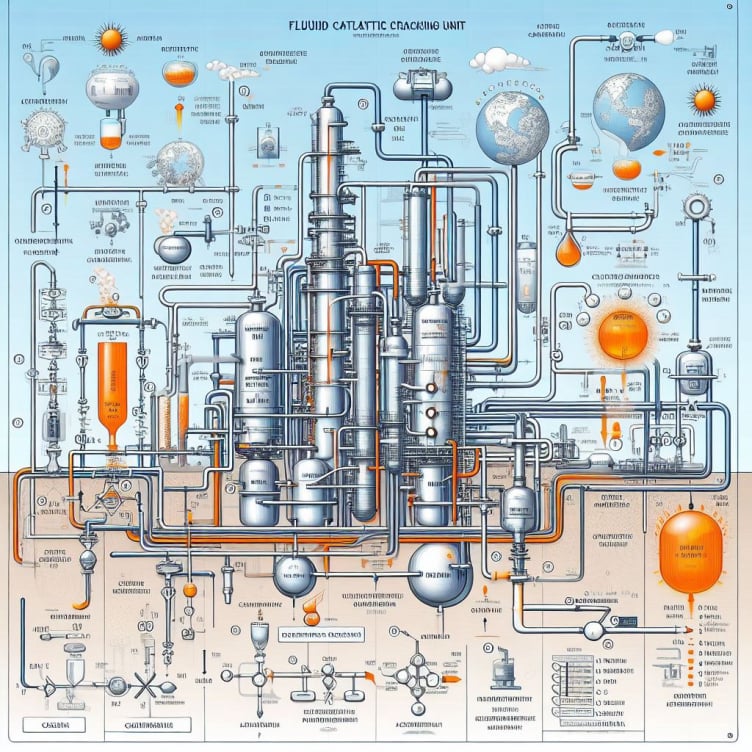
Catalytic Fluid Cracking (FCC)
Catalytic Fluid Cracking (FCC) is a fundamental process in the petroleum refining industry, used to convert heavier hydrocarbons into higher-value products such as gasoline and diesel. This method plays a crucial role in maximizing the production of light and high-demand products, meeting the needs of the modern fuel market.
Amidst this scenario, DELVE QUÍMICA takes the lead, bringing innovation and excellence to the FCC universe. Our state-of-the-art catalysts stand out for boosting process efficiency, resulting in optimized production of essential fuels. We are committed to offering solutions that not only meet but exceed industry expectations, positioning DELVE QUÍMICA as a reference in the evolution of petroleum refining.
